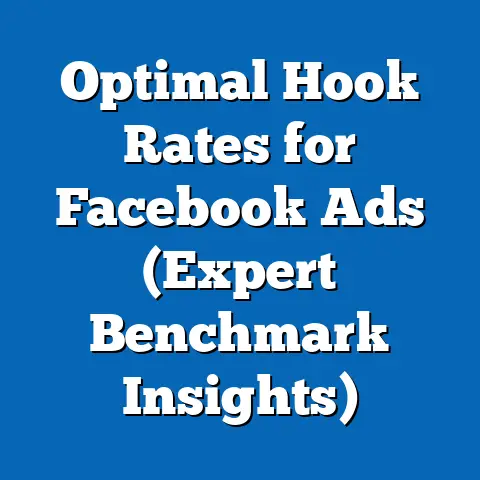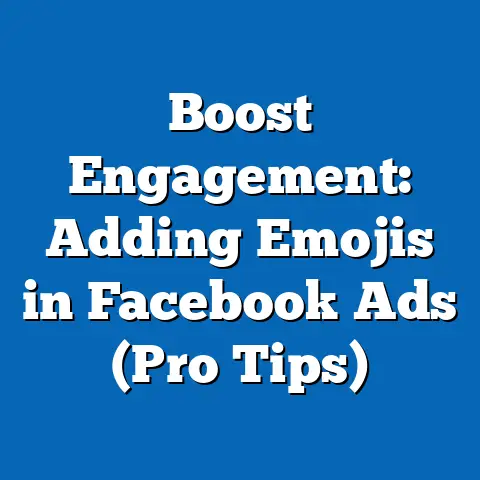Is Facebook Adding Friends Automatically? (Must-Know Insights)
Have you ever logged into Facebook and felt a jolt of surprise, maybe even a little paranoia, when you saw unfamiliar names nestled amongst your friends list?
It’s a feeling I know well.
I remember one evening, scrolling through my feed, and seeing posts from someone I didn’t recognize.
Confused, I checked our mutual friends – a sparse two.
I had no recollection of ever adding this person.
This experience, like many others I’ve heard, sparked a question that’s likely crossed your mind too: Is Facebook adding friends automatically?
Social media platforms like Facebook have become integral to our social lives.
They connect us with loved ones, colleagues, and even strangers who share our interests.
But this constant connectivity can also breed a sense of unease.
The fear of losing control over our online connections, the feeling that our privacy is being eroded – these are legitimate concerns.
In this article, I’ll dive deep into the mechanics of Facebook’s friend suggestion system, explore real user experiences, debunk common myths, and offer actionable insights to help you understand and manage your online connections.
Reflect on your own experiences for a moment.
How much do you really know about who is on your friend’s list, and how they got there?
The Mechanics of Friend Suggestions
Facebook’s friend suggestion algorithm is a complex beast, constantly evolving to connect you with people it thinks you might know.
It’s not magic, though it can sometimes feel that way.
The algorithm considers a multitude of factors when generating these suggestions, and understanding these factors is key to understanding whether Facebook is actually adding friends automatically (spoiler alert: it’s not).
Here are some of the primary data points that influence Facebook’s friend suggestions:
- Mutual Friends: This is the most obvious and perhaps the strongest indicator.
If you have a significant number of friends in common with someone, Facebook assumes there’s a high likelihood you know them. - Shared Groups: Being a member of the same Facebook groups is another strong signal.
If you’re both active in a group dedicated to, say, “Vintage Motorcycle Restoration,” Facebook might suggest you connect.
I’ve personally found this to be a surprisingly accurate predictor, often leading to connections with individuals I’ve seen online but haven’t met in person. - Tagged Photos: If you’ve both been tagged in the same photos, the algorithm sees this as a sign of potential connection.
- Work and Education History: Sharing the same employer or attending the same school are classic indicators of potential acquaintance.
- Location: If you’ve both been in the same location at the same time (e.g., attending the same conference or visiting the same city), Facebook might suggest a connection.
- Uploaded Contacts: Facebook asks for access to your contacts when you sign up.
It uses this data to suggest friends based on phone numbers and email addresses.
This is a controversial practice, and I always advise caution when granting apps access to your contacts. - Interactions on the Platform: Liking, commenting, and sharing the same content can also contribute to friend suggestions.
The algorithm infers that you share similar interests and might want to connect.
Facebook collects vast amounts of data to enhance user experience, and friend suggestions are a direct result of this data collection.
The platform aims to create a more engaging and relevant experience by connecting you with people who share your interests, background, or social circles.
However, this data-driven approach can sometimes lead to suggestions that feel intrusive or inaccurate, fueling the perception that Facebook is acting without your consent.
Takeaway: Facebook’s friend suggestions are based on a complex algorithm that analyzes various data points.
Understanding these factors can help you interpret why certain people are being suggested and manage your privacy settings accordingly.
User Experiences and Anecdotes
The internet is rife with stories of users encountering unexpected friend additions on Facebook.
These experiences range from amusing to downright alarming, highlighting the complex relationship we have with the platform.
One common scenario involves individuals finding themselves connected to distant acquaintances or people they barely remember meeting.
I once spoke to a woman who was shocked to see her childhood dentist among her friends.
She hadn’t seen him in decades and had no idea how they were connected on Facebook.
This type of experience can be unsettling, raising questions about how Facebook is piecing together our social connections.
On the other hand, some users have reported positive experiences with unexpected friend additions.
They’ve reconnected with old classmates, former colleagues, or long-lost relatives.
I’ve even had a few instances where a friend suggestion led to a valuable professional connection.
These serendipitous encounters can create a sense of community and expand our social circles in unexpected ways.
However, the darker side of these experiences involves concerns about privacy and security.
Some users have reported being connected to individuals they actively avoided or had negative experiences with.
This can lead to feelings of anxiety and a sense of vulnerability.
I’ve heard stories of people being stalked or harassed by individuals they were unknowingly connected to on Facebook, underscoring the potential risks associated with the platform’s friend suggestion system.
Here are a few anonymized examples I’ve gathered:
- Sarah: “I found my ex-boyfriend’s new girlfriend on my friend list.
I never added her, and we have no mutual friends.
It was really creepy and made me question everything.” - David: “I was surprised to see my boss’s boss on my friend list.
I barely know him, and I’m not sure how we got connected.
It makes me uncomfortable knowing he can see my posts.” - Emily: “I reconnected with a childhood friend I hadn’t seen in years thanks to Facebook’s friend suggestions.
It was a really heartwarming experience.”
These anecdotes illustrate the spectrum of emotions and experiences associated with Facebook’s friend suggestion system.
While some users appreciate the platform’s ability to connect them with people from their past, others are concerned about the implications for privacy and security.
Takeaway: User experiences with unexpected friend additions on Facebook are varied, ranging from positive reconnections to concerns about privacy and security.
These experiences highlight the complex relationship we have with the platform and the importance of understanding its friend suggestion system.
Debunking Myths and Misunderstandings
One of the biggest misconceptions surrounding Facebook’s friend suggestion system is the belief that the platform can automatically add friends without your consent.
This is simply not true.
Facebook cannot add friends to your account without your explicit approval.
However, there are several factors that can contribute to the perception that this is happening.
First, it’s important to distinguish between friend suggestions and actual friend requests.
Friend suggestions are simply recommendations from Facebook, based on the algorithm’s analysis of your data.
They appear in the “People You May Know” section and do not automatically add anyone to your friend list.
You still have to manually send or accept a friend request to establish a connection.
Second, users may sometimes misinterpret notifications and suggestions.
Facebook sends notifications when someone sends you a friend request.
If you accidentally click “Accept” on a friend request without realizing it, you might later find yourself connected to someone you don’t recognize.
I’ve almost made this mistake myself, the accept button is sometimes too close to other options.
Third, some users may have unknowingly granted Facebook access to their contacts, allowing the platform to suggest friends based on phone numbers and email addresses.
This can lead to unexpected connections with people you haven’t actively sought out on Facebook.
Here are some common myths I’ve encountered:
- Myth: Facebook is adding friends to my account without my permission.
- Reality: Facebook cannot add friends without your explicit approval.
Friend suggestions are simply recommendations.
- Reality: Facebook cannot add friends without your explicit approval.
- Myth: Facebook is listening to my conversations and suggesting friends based on what I’m talking about.
- Reality: While Facebook does collect data about your online activity, there is no evidence to suggest that it is actively listening to your conversations for the purpose of friend suggestions.
- Myth: Facebook is selling my data to third parties to generate friend suggestions.
- Reality: Facebook does not sell your personal data to third parties.
However, it does use your data to personalize your experience, including friend suggestions.
- Reality: Facebook does not sell your personal data to third parties.
- Reality: Facebook cannot add friends without your explicit approval. Friend suggestions are simply recommendations.
- Reality: While Facebook does collect data about your online activity, there is no evidence to suggest that it is actively listening to your conversations for the purpose of friend suggestions.
- Reality: Facebook does not sell your personal data to third parties.
However, it does use your data to personalize your experience, including friend suggestions.
It’s important to approach these myths with a critical eye and rely on accurate information from trusted sources.
Understanding the difference between friend suggestions and actual friend requests, and being aware of your privacy settings, can help you dispel these myths and manage your online connections more effectively.
Takeaway: Facebook cannot automatically add friends without your consent.
The perception that this is happening is often due to misunderstandings about friend suggestions, misinterpreted notifications, or unknowingly granting Facebook access to your contacts.
Privacy Concerns and User Control
The friend suggestion feature, while seemingly innocuous, raises significant privacy concerns.
Facebook’s algorithms utilize personal data and user behavior to create friend connections, and this data collection can feel intrusive to some users.
The platform collects vast amounts of information about your online activity, including your likes, comments, shares, group memberships, and location data.
This data is used to build a profile of your interests, preferences, and social connections.
While Facebook claims that this data is used to enhance user experience, it also raises questions about the extent to which our personal information is being used and shared.
One of the biggest concerns is the potential for Facebook to connect you with people you actively avoid or have negative experiences with.
If you’ve blocked someone on Facebook, the platform should not suggest them as a friend.
However, there have been reports of users being connected to people they’ve blocked, raising questions about the effectiveness of Facebook’s blocking mechanisms.
Fortunately, users have some control over their friend lists and privacy settings.
Here are some actionable steps you can take to manage your online connections and protect your privacy:
- Review Your Friend List: Regularly review your friend list and remove anyone you don’t recognize or no longer want to be connected with.
- Adjust Your Privacy Settings: Customize your privacy settings to control who can see your posts, photos, and personal information.
- Limit Access to Your Contacts: Be cautious when granting apps access to your contacts.
Only grant access to trusted apps that you know and use regularly. - Use the “Take a Break” Feature: If you’re going through a difficult breakup or want to limit contact with someone, use Facebook’s “Take a Break” feature to restrict their access to your profile.
- Report Suspicious Activity: If you suspect that someone is stalking or harassing you on Facebook, report their activity to the platform.
By being proactive in managing your online connections and privacy settings, you can minimize the risks associated with Facebook’s friend suggestion system and protect your personal information.
I personally review my friend list every few months to make sure I’m only connected with people I actually know and trust.
Takeaway: Facebook’s friend suggestion feature raises privacy concerns due to the platform’s extensive data collection practices.
However, users have some control over their friend lists and privacy settings, and can take steps to manage their online connections and protect their personal information.
The Impact of Social Dynamics on Friendship
Social media has fundamentally changed the nature of friendship in the digital age.
Platforms like Facebook have made it easier than ever to connect with people from all over the world, but they’ve also blurred the lines between acquaintance and friend.
The traditional definition of friendship involves a close, personal relationship based on mutual trust, respect, and shared experiences.
However, on Facebook, the term “friend” has become much broader, encompassing everything from close confidants to casual acquaintances to complete strangers.
This shift in social dynamics has several implications for friendship.
First, it can lead to a sense of social overload.
Being connected to hundreds or even thousands of people on Facebook can be overwhelming, making it difficult to maintain meaningful relationships with everyone.
I know many people who feel pressured to accept friend requests from acquaintances or strangers, even if they don’t have a genuine desire to connect with them.
Second, it can create a sense of social comparison.
Seeing curated versions of other people’s lives on Facebook can lead to feelings of envy, inadequacy, and low self-esteem.
It’s important to remember that what you see on social media is not always an accurate reflection of reality.
Third, it can erode the quality of our relationships.
Spending too much time online can detract from our ability to connect with people in real life.
I’ve seen couples who spend more time scrolling through their phones than talking to each other, and families who are more engaged with their devices than with each other.
The automatic friend suggestions offered by Facebook and other social media platforms further complicate these dynamics.
They can lead to connections that are based on algorithms rather than genuine shared interests or personal connections.
This can result in a diluted sense of friendship, where the number of connections matters more than the quality of those connections.
It’s important to be mindful of these social dynamics and to approach online friendships with intention and discernment.
Focus on building meaningful relationships with people you genuinely care about, and don’t feel pressured to accept friend requests from everyone who sends them.
Takeaway: Social media has fundamentally changed the nature of friendship in the digital age, blurring the lines between acquaintance and friend.
It’s important to be mindful of these social dynamics and to approach online friendships with intention and discernment.
Conclusion: Call to Action
So, is Facebook adding friends automatically?
The answer, as we’ve explored, is a resounding no.
However, the platform’s friend suggestion system, driven by complex algorithms and vast amounts of personal data, can create the perception that this is happening.
Understanding how these algorithms work, and the potential implications for privacy and social dynamics, is crucial for managing your online connections effectively.
I’ve shared insights into the mechanics of friend suggestions, explored real user experiences, debunked common myths, and offered actionable steps to protect your privacy.
I hope this article has empowered you to take control of your online presence and make informed decisions about your social connections.
As you reflect on your own friend list, consider the following:
- Who are the people you’re connected to on Facebook?
- How did you connect with them?
- Do you have a genuine desire to maintain these connections?
- Are you comfortable with the amount of personal information you’re sharing on the platform?
These are important questions to ask yourself as you navigate the complex world of social media.
Remember, you have the power to shape your online experience and to curate a social network that reflects your values and priorities.
In this digital age, where algorithms and data drive so much of our online interactions, it’s essential to pause and reflect on the human element of friendship.
Who are we really connected to?
And what does it mean to be a friend in the age of Facebook?
That, my friends, is a question worth pondering.





